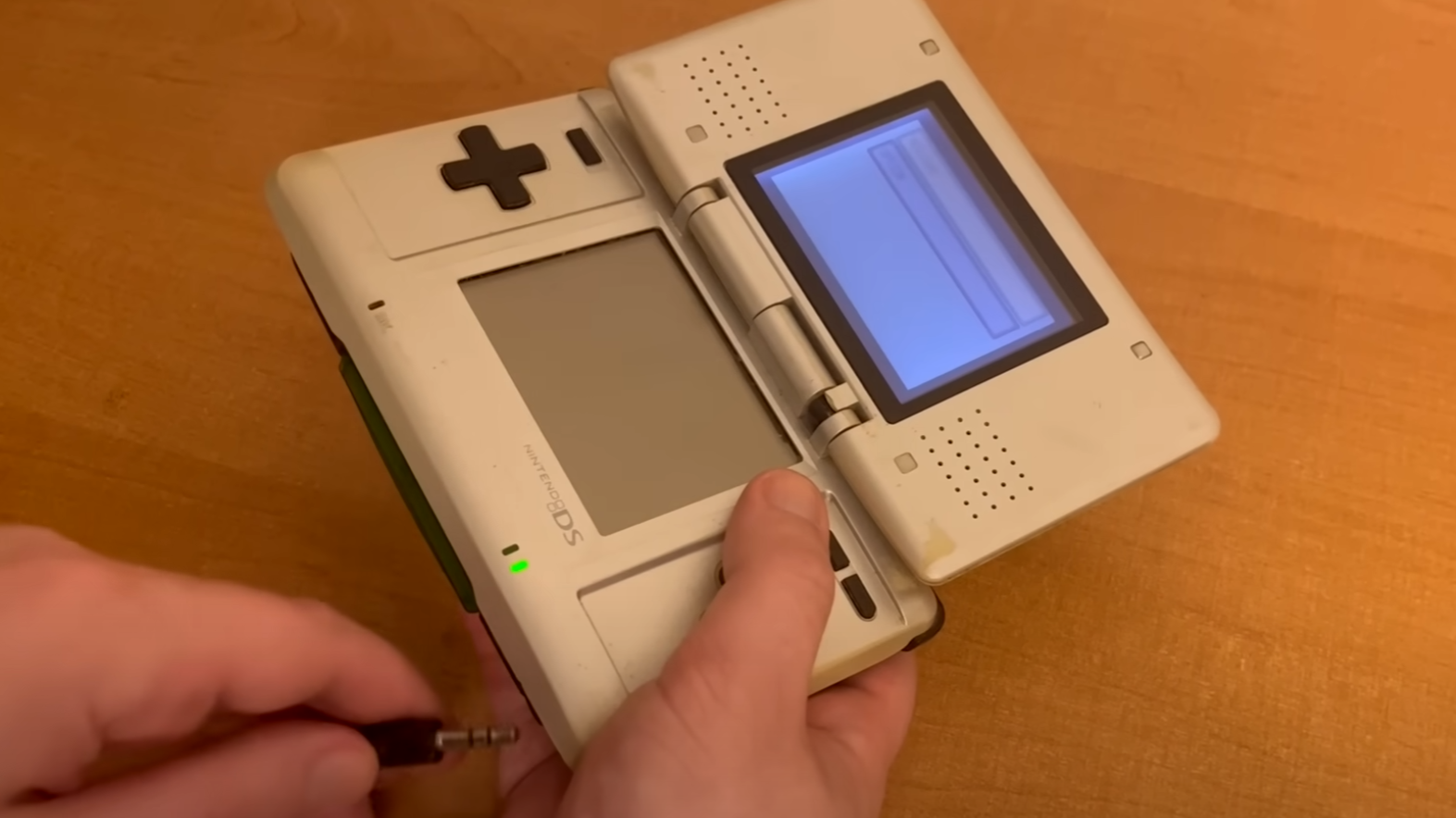Game Boy Advance games can be recreated from the sound they make when they die, modder demonstrates
Has hacker TheZZAZZGlitch found the Game Boy equivalent to necromancy

Hardware modder and software hacker The ZZAZZGlitch has successfully reverse-engineered a Game Boy Advance game's data solely from the sound made when a GBA game experiences a hard crash [h/t Ars Technica]. The Game Boy Advance crash noise, for the uninitiated, is a long-documented occurrence known best for its unique per-game "crash songs".
According to TheZZAZZGlitch, these per-game crash songs aren't just a quirky side effect of the GBA and its games having no real crash handling. These per-game crash "songs" actually contain the entire cartridge's ROM data, played back in raw audio, which includes every sound on the game cartridge in tightly-sequential order. With the correct tools and hacking know-how, any GBA game should be recoverable from that audio by itself.
Or in layman's terms: Game Boy Advance games can be recreated from the sound they make when they die, as long as you have the appropriate tools with which to listen and decode.
Below, we've embedded the original video from TheZAZZGlitch, which includes a detailed run-through of testing methodology and runs until experiencing success with a Chinese replica cartridge of Pokémon Emerald. The recording device used was ZAZZ's own original Nintendo DS model connected via Line In to a spare laptop, for maximum-fidelity capture of that beautiful cacophony.
If experimenting with this sounds appealing to you, the source code is available on TheZZAZZGlitch's personal site, labeled "gbacrashsound_dumper.zip." Mind you'll still need to do a lot of manual work and tuning beyond the initial crash audio dumping process— ZZAZZ even clarifies its nature as "hardly a ready-to-use solution" in the description of the original video.
Elaborately reverse engineering the game's data from crash audio is still quite the feat, though the final result required a separate script that aligned sections of 0-byte data from the recording to be in line with their placement in the original game file. This gave a 99.76% accurate result that couldn't finish booting the game, but even TheZZAZZGlitch refers to this as "cheating" since it relies on existing ROM data to help map the recorded crash audio.
Overall, this demonstration serves as a fascinating proof of concept, but it is in no way a practical or optimal manner of creating a dump of a Game Boy Advance game cart. It is, though, an incredibly fascinating look at the early days of handheld gaming hardware, and an oddly-existential one at that.
Get Tom's Hardware's best news and in-depth reviews, straight to your inbox.

Christopher Harper has been a successful freelance tech writer specializing in PC hardware and gaming since 2015, and ghostwrote for various B2B clients in High School before that. Outside of work, Christopher is best known to friends and rivals as an active competitive player in various eSports (particularly fighting games and arena shooters) and a purveyor of music ranging from Jimi Hendrix to Killer Mike to the Sonic Adventure 2 soundtrack.
-
ezst036 ReplyPierce2623 said:This is actually the most interesting tidbit of news posted lately.
I agree with that totally. One thing I was hoping to see, but didn't. There's no github page.(I may have missed it) It's on a Google site somewhere and those things sometimes have a tendency to disappear.
That's rather sad for such an innovative way to handle it. This could be really useful in a wider audience of hands for a longer period of time. -
dalauder This is amazing, so much so that I feel like it's an April Fool's joke. But it's not April, so it must be real?Reply